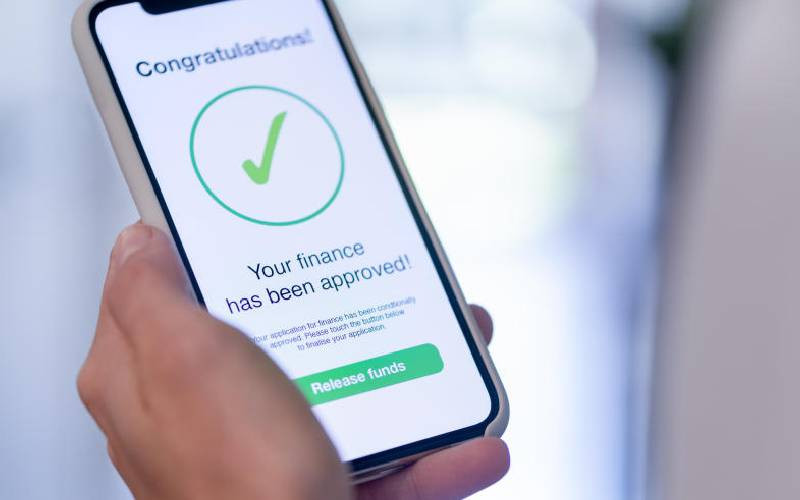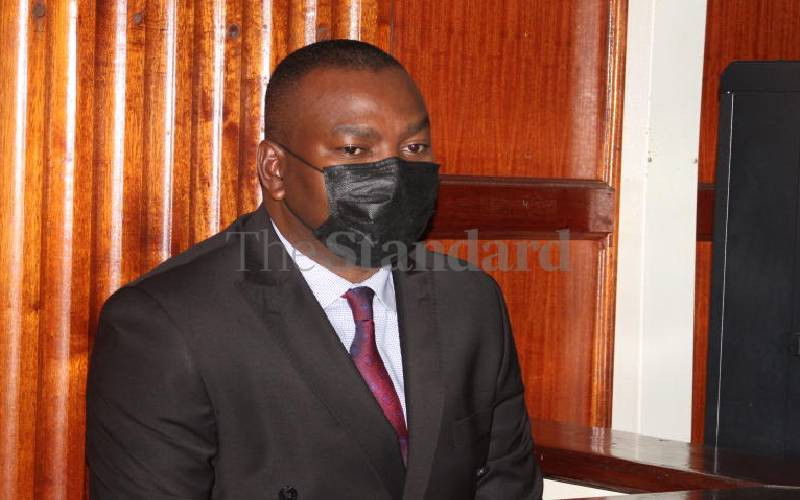By Lillian Kiarie
Franklin Akoko had a rough childhood. He buried his parents on the same day while still in primary school, the money left for him and his younger sister’s upkeep was squandered on alcohol, and the two were forced to relocate to Nyakach to live with their grandmother, who struggled to raise them.
But today, Mr Akoko, 24, is the CEO of a group of three companies whose assets are valued at Sh78 million, and has created jobs for 32 people.
His sister, Laureen Awour, 19, contacted us after reading the features published in Business Beat and convinced a rather reluctant Akoko to share his story.
Sorry for the loss of your parents. What happened?
When I was in Class 7, my dad got sick and suddenly passed away. On hearing the news, my mother, who was really close to my dad, got a stroke and stopped eating. She passed away after two days, and we buried both of them on the same day.
I felt the weight of the world on my shoulders. My sister was about four years younger than I was, and I knew I would have to grow up quickly and work hard to be there for her.
My dad used to work at the ministry of Agriculture, and on his death, his benefits were passed on to my uncle who was taking care of us. We stayed with him until I sat my KCPE and was admitted to Nyabondo Boys High School. However, I learned that the money set aside for fees had been squandered, so we were forced to move to the village in Nyakach, east of Kisumu, to live with my grandmother.
She helped me get into Adingo Opanga Secondary School, which, though unpopular, was the only school she could afford. She sold her only cow and got Sh7,000 for it, and I started my studies.
Although the fees for the entire four years came to Sh48,000, we did not have the means to pay it comfortably. I relied on bursaries and we sold various household items to raise money. My grandmother was sickly and died after my Form Four exams, so she did not live to see me score a B+.
I had a fee balance of Sh22,000, which I finally settled with the proceeds I got from selling charcoal to villagers and with some help from my relatives.
What was life like after high school?
One of my dad’s cousins, an uncle I consider a pillar of strength to date, took me in and I lived with him in Umoja, Nairobi. At the time, my sister was in boarding school.
He encouraged me to pursue my interests, which were in environmental science — just like my dad’s were. I enrolled at the University of Nairobi for parallel studies, with financing from the Higher Education Loans Board (Helb). My uncle used to give me pocket money.
In 2008, while in my second semester, I got an internship at a company that deals with auditing environmental reports for companies. I quickly learned the ropes and after the four-month internship ended, I thought of venturing into the business.
Stay informed. Subscribe to our newsletter
How did you start your company and where did you get your initial capital?
I learned how to create a website during my free time, so after settling on the concept for my company, I registered it with Sh20,000 I received from my uncle, set up its website and Altime Management Consultancy was born.
I first approached Prima Rosa, a flower firm in Nyahururu, to help them with an environmental impact assessment on greenhouse structures they were planning to set up. During my internship, I had been sent to do some work with them and had set out to perform excellently. They were impressed. So when I approached them with a proposal as Altime, they were happy to take me on. Also, the fact that my body build makes people think I am older than I really am helped me a lot.
I came up with a 100-page report that captured all the necessary National Environment Management Authority (Nema) requirements, including on soil analysis and water supply. The company paid me Sh280,000 for a job that had cost me about Sh10,000 — most of which I had spent on transport.
My second job was with a company called Ecotech, which, after conducting an environmental audit and risk assessment, paid me Sh140,000. I was ecstatic and saw the untapped potential in the environmental science sector. I built my name through being reliable, competent and satisfying my customers.
When did you make your first million?
I was 20. I got a project to do a feasibility study for a power station and was paid Sh1,078,000 — I’ll never forget that figure; you hear about millions, but it is quite an experience to hold that cheque.
I was still a student at UoN and had by then done many other projects for several companies. I was labelled a hustler in school, so I kept information on how much I was making a secret.
How did you spend your first million?
I actually had no major plans for the money then, so I just put it all in a savings account and did not indulge in any extravagance. However, I bought my first car, a Nissan X-Trail, while in my third year, to help me navigate the rough roads and sometimes long distances I had to cover when coming up with reports for my clients. I never took it to school, though, as I did not want to draw any undue attention to myself.
What happened after graduation?
I was not looking for employment, so I went into full-time management of Altime. It was then that I realised there is a gap in solar equipment installation and I started Solartech. I partnered with a Chinese company that sells me solar equipment at low rates, and if I have big orders to fill, they send me supplies without my having to pay upfront.
I also noticed that many people were digging boreholes, and I thought: why not supply the market with drilling machines? So I started Hydrotech, which supplies machinery and does geotechnical investigations that determine the viability of a proposed borehole location. We recently opened a Hydrotech branch in Rwanda, which is picking up.
What is your motivation?
I want to help others who come from backgrounds like mine, and continue my dad’s legacy by helping the poor children in my village.
What has been your biggest challenge?
Managing a business when young can be very challenging and it is sometimes hard to find the money to pay my employees’ salaries as the money available may be required for other projects.
Parting shot?
You really want to do something? Go for it.
[email protected]
 The Standard Group Plc is a
multi-media organization with investments in media platforms spanning newspaper
print operations, television, radio broadcasting, digital and online services. The
Standard Group is recognized as a leading multi-media house in Kenya with a key
influence in matters of national and international interest.
The Standard Group Plc is a
multi-media organization with investments in media platforms spanning newspaper
print operations, television, radio broadcasting, digital and online services. The
Standard Group is recognized as a leading multi-media house in Kenya with a key
influence in matters of national and international interest.
 The Standard Group Plc is a
multi-media organization with investments in media platforms spanning newspaper
print operations, television, radio broadcasting, digital and online services. The
Standard Group is recognized as a leading multi-media house in Kenya with a key
influence in matters of national and international interest.
The Standard Group Plc is a
multi-media organization with investments in media platforms spanning newspaper
print operations, television, radio broadcasting, digital and online services. The
Standard Group is recognized as a leading multi-media house in Kenya with a key
influence in matters of national and international interest.









